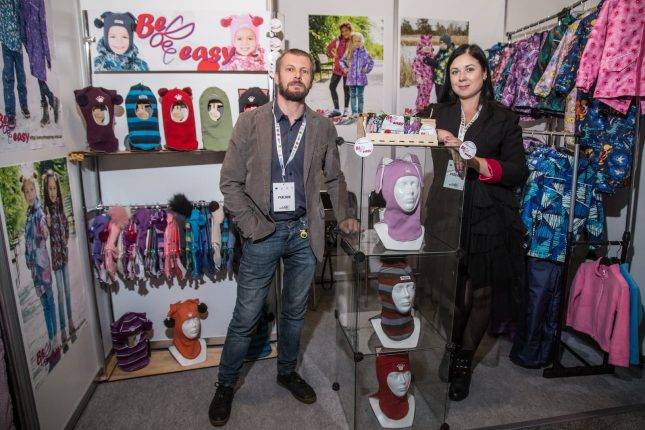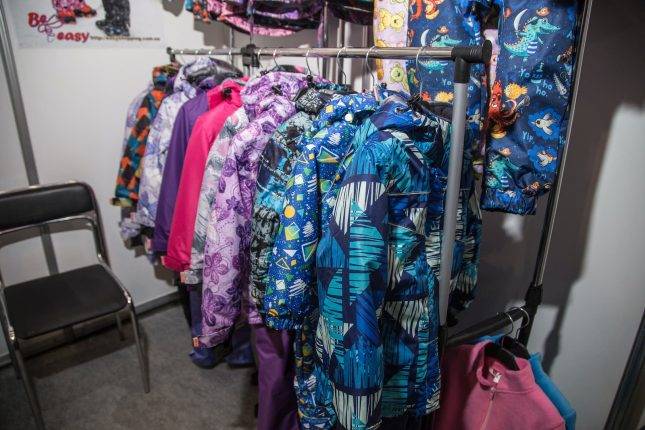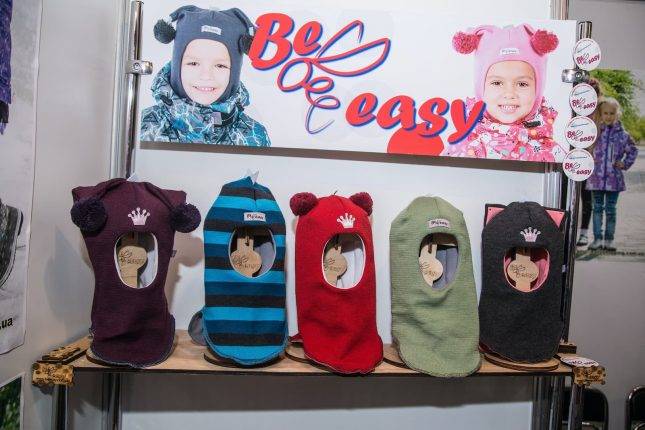
From Children’s Jackets to Tactical Backpacks: How Be Easy Creates Quality Items in Ukraine
03/08/2023
When Dmytro and Maria Kosilkyn from Lysychansk, Luhansk region, had a baby son, the couple, like thousands of other Ukrainian parents, faced a difficult question: Where could they find comfortable, warm, and waterproof clothes for their baby? It was the early 2010s, and the choice was between high-quality but expensive European clothes, or cheap but low-quality Chinese items. It was then that Dmytro had an idea: why not have a jacket made? Moreover, not one but several – and sell the rest to cover the costs.
Since the couple had no sewing experience, they turned to an atelier for help. But they were not happy with the quality of the latter’s work, and so in the fall of 2014 the Kosilkyns opened their own workshop in Lysychansk, where the first children’s jackets of the Be Easy brand were made on their first three sewing machines.
Rapid Development
In a few years, the business became strong and in many ways unique. An admirer of the businessman Henry Ford’s approach, Dmytro quickly realized that simple scaling – increasing the number of workers – is not enough for business development. The main thing is to work on production efficiency. So he began to introduce technological and conceptual business ideas, and in particular, the Japanese concept of lean production.
“I’ve always been fascinated by production as a process,” says Dmytro. “For me, that’s the most interesting part of business. Many people don’t even realize how efficient production can be.”
He proudly says that on the eve of the war, Be Easy managed to sew and ship an order for several dozen jackets, which were shown at an exhibition and sold even before it ended.
Inspired by the Japanese business concept, Dmytro studied the production processes, constantly inventing new ways to reduce the time spent on each individual operation and increase overall efficiency.
Be Easy does not sew clothes in advance, hoping to sell finished items later, but makes clothes to already placed orders. It just does it so quickly that online store buyers can’t even tell the item they ordered didn’t even exist when they clicked “buy.” The approach allows the process to be optimized financially, and saves on renting warehouses for storing finished products – an extremely useful option at any time, and even more so now, with the company’s relocated production unit now housed in a small room in the city of Dnipro.
The War
Like the majority of Ukrainians, Dmytro did not believe war was coming until the last minute.
“I was warned that war was inevitable, that I should relocate the business before it’s too late,” Dmytro recalls sadly. “I can’t say I ignored this advice altogether: we gave detailed instructions to our employees, everyone prepared their emergency suitcases, and an approximate plan of action was developed. Still, the war caught everyone by surprise.”
Until the end of April 2022, the Kosilkyns stayed in Lysychansk, believing that the war would end soon. Together with other entrepreneurs, they created a volunteer movement, helped local residents, and delivered humanitarian aid. Their entrepreneurial experience came in handy here as well, Dmytro says. Only when the city was under the imminent threat of being besieged, and the Bakhmut highway began to be systematically shelled, did they decide to flee to save their families.
For about six months, they lived in a small shelter in Dnipro, which their friends provided for free. Six families lived there in a space of 25 square meters (about 269 square feet). Even then, the Kosilkyns started thinking about resuming their clothes-making business.
Unfortunately, they were not able to take much equipment from Lysychansk. Due to constant shelling, they had only 24 hours and one truck for an operation to rescue the business. They managed to take only the things that could be carried out by hands: sewing machines, some fabrics, and other “little things.” Meanwhile, a pocket welting machine worth EUR 40,000 (about $44,112), a laser cutting machine, and other bulky and expensive equipment remained in Lysychansk – without a lifting crane, it was impossible to remove the heavy equipment from the Be Easy workshop, which was located on the second floor of a building.
Not only material things were lost. Together with them, the Be Easy online store “died” in Lysychansk and the company lost part of its staff. The company also lacked the raw materials to resume manufacturing.
But it managed to get back in business with a grant from the United Nations Development Programme, and the support of the EU4Business Initiative.
Hard Recovery
Before the war, Be Easy could produce up to 35 stylish and bright children’s jackets and snowsuits per day. It also took orders to make clothes for famous Ukrainian brands, in particular for Andre Tan. However, since the beginning of the war, about two million small Be Easy clients had moved abroad with their mothers. Thousands more customers who had relocated within the country limited their consumption to only the most necessary things. Hence, the company had to look for new niches.
“My friends from Dnipro city who helped us with the relocation made me acquainted with people from the military,” says Dmytro. “We had a batch of white membrane fabric from China, which we had ordered before the war and which had not been sent to Lysychansk. We printed a pixel camouflage pattern on it and started making various things for the military, gradually improving them and expanding the line.”
Later, they managed to launch a new Be Easy online store, which sells about fifty different models of children’s jackets of the company’s own design, and the same number of military items: from waterproof ponchos to plate carriers and tactical backpacks.
Be Easy is now making its first attempts to conquer the European market. So far, it’s doing so with the help of Ukrainian mothers who were forced to flee with their children – the company sends them their orders via the private Ukrainian postal service Nova Poshta. It has also launched a line of patriotic T-shirts of its own design.
The entrepreneur admits that for a small business like his it’s extremely difficult to compete with large manufacturers serving “army” contracts, and there are lots of other problems facing the business as well. Nevertheless, despite all the difficulties, the owner of Be Easy has plans to organize something like a training course for budding businessmen who are also fascinated by the manufacturing process.
“I realize that this may sound a bit corny, but I do think it’s right to set up production here in Ukraine,” Dmytro says. “When we started creating patriotic T-shirts, people told me I was crazy. Like, it’s much more profitable to buy a batch (of T-shirts) in China and just make the prints here. But in this case it’s the Chinese economy that makes money, not the Ukrainian one.”
“Besides, manufacturing is really an exciting process. I already feel I can share my experience with young entrepreneurs.”
Stories
-
Katarina Mathernova: If Ukraine had a human face and a human spirit, it would be 10-year-old Roman Oleksiv
-
A regional mission to drive social entrepreneurship: the story of Ksenia Kosukha
-
EU restores safe water supply for 100,000 Ukrainians affected by war
-
Promoting IT during the war: Lviv IT cluster and how EU4Digital helps
-
Frontline digitalisation: Kharkiv IT Cluster collaborations
-
How EU4Youth is driving opportunity and success among young Ukrainians


